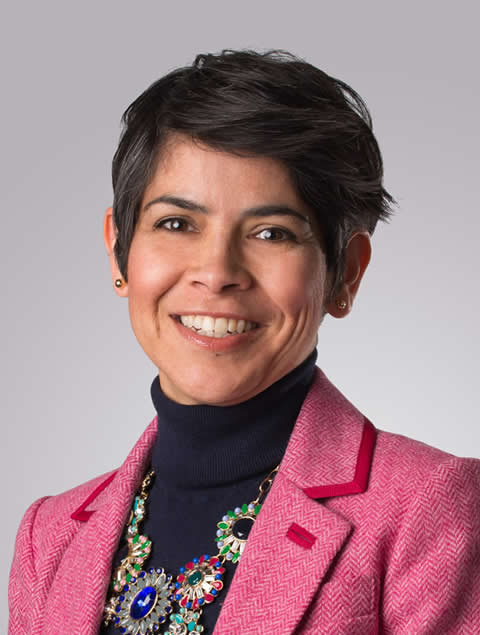
MHDI FACULTY SPOTLIGHT
Virginia ChaidezAssistant Professor, Nutrition & Health Sciences
Date that you joined UNL: January 2015
Hometown: Born and raised in San Diego, California, but consider Sacramento, CA my second hometown.
Describe your research and how it contributes to alleviating or understanding health disparities?
My research is dedicated to achieving health equity and eliminating health disparities in Nebraska, particularly those related to chronic diseases such as diabetes, obesity, cancer, and mental health. My work is best represented through my research that focuses on understanding how Community Health Workers (CHW) can help address health disparities and connecting CHWs where they are needed the most. A “Community Health Worker” is an umbrella term used to describe a frontline public health worker (paid or unpaid) who provides services ranging from community outreach and education, to social support and patient advocacy. This population-based strategy can facilitate improvements in the health of vulnerable populations. CHWs are also incredible allies in conducting research. For example, CHWs were largely responsible for getting over 300 Latinx and Somali community members to come forward and participate in a research study we conducted in a rural town in Nebraska. These CHWs are trusted by the community, so their recruitment efforts helped us gather important data that gave voice to these hard-to-reach groups.
I don’t know if “inspire” is the right word, but for me, as a second-generation Mexican American growing up in a predominately White suburban neighborhood, observing health disparities before I even knew what they were, was something that caught my interest as early as the 3rd grade and motivated me to learn more about health. I remember being confused, concerned and curious about why my mom was significantly overweight and didn’t quite fit in with most of the White moms that I would see show up with their kids at school. And by extension, I didn’t feel like I totally fit in either. It baffled me as a young kid, and now, retrospectively, I have a much greater understanding of nuanced and contextual factors that contributed to the differences I observed in physical and mental health.
How does your research contribute to your research area at MHDI?
Another related theme of my research is focusing on the health needs of a growing Latino population. As a second-generation Mexican American health disparities researcher, I can better relate, build rapport and foster capacity-building in Latinx populations as part of my effort to address health disparities through impactful research related to chronic diseases that disproportionately affect Latinx populations, such as diabetes, obesity and mental health. So whenever possible, I collaborate with other health disparities researchers who are interested in Latinx populations bringing their area of expertise to the table, such as family and human development, for example. We also try to focus and better understand the positive aspects of Latinx culture and norms, so that we can build on these when we design interventions or better advocate and inform policies that can play on these strengths.
What advice would you give to incoming students (graduate or undergraduate) who are interested in studying health disparities?
Be curious and get out of your comfort zone. You can start small, perhaps attend any number of MHDI Health Equity Speakers or Conversation Series to get a sense of what health disparities research might interest you; or reach out to a UNL librarian for tips on finding scholarly papers or other relevant readings to get you started. From there, consider what capacity you would want to serve in related to health disparities. For example, conducting health disparities research is one area you might pursue, but a focus on health disparities can transcend many other professions. In fact, there’s a good chance you could make a huge impact on your chosen field of study by focusing on health disparities where currently there may be little if any focus.
What advice would you give to incoming faculty who are interested in health disparity research?
Spend a little time getting to know the landscape in Nebraska especially if you just moved here, and get to know what Nebraska research colleagues are working on. If you are an early-career faculty member, doing this gives you an idea about where your expertise and interests might fit in or overlap, and more importantly, help guide where you might better fill some existing gaps. MHDI has a great network of health disparities researchers you can peruse or reach out to get you started.
What would your colleagues/students be surprised to learn about you?
I can play a decent game of pool (billiards). But now that it’s out, I can no longer hustle for a few extra bucks*. (*Disclaimer: This is a joke. I do not actually hustle on the side.)